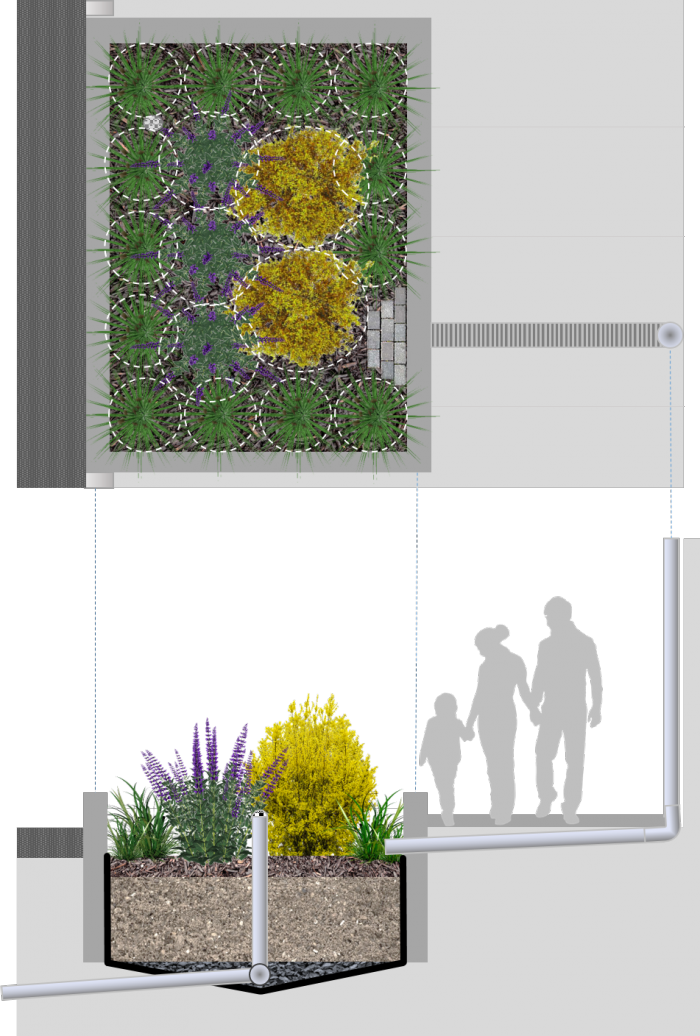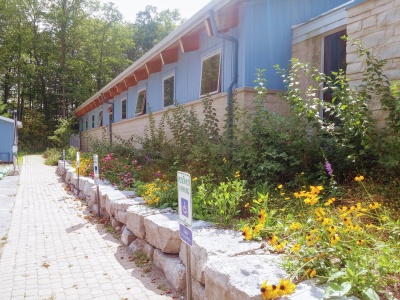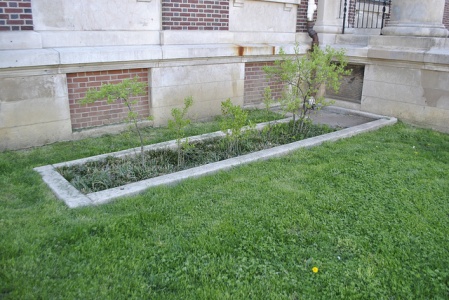Difference between revisions of "Stormwater planters"
Jenny Hill (talk | contribs) m |
Jenny Hill (talk | contribs) m |
||
| Line 16: | Line 16: | ||
</imagemap> | </imagemap> | ||
| − | Over subsurface infrastructure, soils prone to subsidence, or pollution hotspots, it may be necessary to prevent all [[infiltration]]. These BMPs can also be squeezed into tight urban spaces, adjacent to buildings and within the usual | + | Over subsurface infrastructure, soils prone to subsidence, or pollution hotspots, it may be necessary to prevent all [[infiltration]]. These BMPs can also be squeezed into tight urban spaces, adjacent to buildings and within the usual setbacks required for infiltrating facilities. |
Stormwater planters can also be used as a means of providing building-integrated LID by capturing a portion of the rainwater from the rooftop. | Stormwater planters can also be used as a means of providing building-integrated LID by capturing a portion of the rainwater from the rooftop. | ||
Revision as of 20:40, 6 March 2018
Over subsurface infrastructure, soils prone to subsidence, or pollution hotspots, it may be necessary to prevent all infiltration. These BMPs can also be squeezed into tight urban spaces, adjacent to buildings and within the usual setbacks required for infiltrating facilities. Stormwater planters can also be used as a means of providing building-integrated LID by capturing a portion of the rainwater from the rooftop.
Performance[edit]
This performance related section is due to be updated throughout 2018 as STEP perform a literature review of all common LID performance metrics. Water quality [1] [2] [3]
Gallery[edit]
Stormwater planters are ideal for situating alongside buildings to capture rainwater from roof runoff. LSRCA headquarters, 2017.
Stormwater planter, treating downspout runoff, at Waterview Rec Center, Philidelphia
Photo credit: PWDRain garden, Illick Hall, SUNY College of Environmental Science and Forestry, Syracuse, NY
Photo credit: DASonnenfeld
See Also[edit]
- ↑ Macnamara, J.; Derry, C. Pollution Removal Performance of Laboratory Simulations of Sydney’s Street Stormwater Biofilters. Water 2017, 9, 907.;doi:10.3390/w9110907
- ↑ Lucke, T., & Nichols, P. W. B. (2015). The pollution removal and stormwater reduction performance of street-side bioretention basins after ten years in operation. Science of The Total Environment, 536, 784–792. https://doi.org/10.1016/J.SCITOTENV.2015.07.142
- ↑ Macnamara, J.; Derry, C. Pollution Removal Performance of Laboratory Simulations of Sydney’s Street Stormwater Biofilters. Water 2017, 9, 907. doi:10.3390/w9110907



